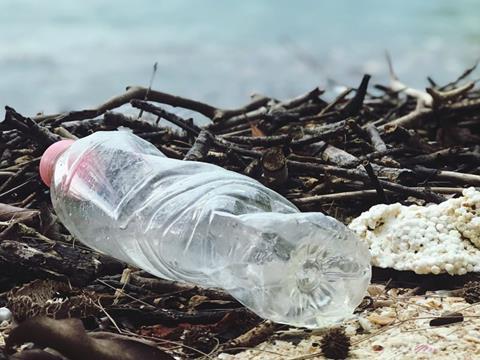
According to National Geographic, only around nine per cent of all the plastic ever made is likely to be recycled. Food and beverage manufacturers face pressure to reduce the amounts of plastics in their packaging, yet recent efforts by large brands like McDonald’s and Coca-Cola have drawn controversy rather than praise.
Consumers have expressed dissatisfaction with the quality of the packaging, while questions have been raised about their actual recyclability. Stephen Hayes, managing director of automation systems specialist Beckhoff UK, explains why he thinks that PC-based controls offer the best solution.
It has been said that there are no sustainable materials, only sustainable systems. This might go some way towards explaining the recent problems faced by McDonald’s and Coca-Cola in their efforts to produce more environmentally-friendly packaging. The move from plastic to paper drinking straws by McDonald’s drew complaints from customers because the paper straws dissolve or collapse while in use. It’s also been found that the new straws cannot be recycled because of their shape, as automated waste sorting technologies cannot separate them from ordinary landfill.
In the case of McDonald’s, the materials are sustainable but the required sustainable systems and technologies are not yet in place. In fact, the UK’s Department for Environment, Food and Rural Affairs (Defra) has said that “appropriate treatment infrastructure” is needed to make compostables truly viable within our ecosystem.
This also applies to Coca-Cola’s PlantBottle. Although it’s made with bioplastics sourced from plants and other renewable resources, it otherwise behaves and biodegrades like a typical PET (polyethylene terephthalate), or regular plastic, bottle. New infrastructure will be required for the bottles to reach their intended potential.
If we summarise the pressures on packaging faced by food manufacturers, they might seem too complex to address fully. Firstly, food manufacturers are expected to reduce the amount of plastic they use while achieving precise thicknesses and measurements in their packaging — in other words, consumers expect a Coke bottle to still look and feel like an iconic Coke bottle. McDonald’s recent straw controversy is testament to this. At the same time, manufacturers are under pressure to achieve faster process speeds, and reduce energy consumption across the entire process chain.
Fortunately, a comprehensive solution to all these issues lies in automation through the use of PC control technology. At the core of PC control is the Beckhoff TwinCAT software system, which turns almost any compatible personal computer (PC) into a real-time controller. The platform is used for programmable logic control (PLC), computer numerical control (CNC) and robotic applications. It consists of runtime systems for program execution and the engineering environments for programming, diagnostics and configuration. The software also features all major programming languages of IEC 61131-3, with object-oriented enhancements for real-time applications.
PC, and also EtherCAT control systems make it possible to automate individual packaging machines, as well as entire lines. This way, resources can be kept to an absolute minimum through better process control. It’s possible to program and control all steps of the packaging manufacturing process — such as forming, filling, sealing, labelling, collecting, boxing and palletising — through a single platform.
But how does this help minimise plastic usage? One way is through the technology’s ability to respond quickly and precisely to points of reference, so it’s possible to place products more closely together in blister packs. The same amount of food can be contained within less packaging and less sealing foil, with reduced waste.
Other advantages include that the sealing temperature can also be precisely controlled to allow for thinner plastic films. Or, packagers of high-volume products can gain a more accurate approximation of minimum fill levels. The TwinCAT control software has many libraries for items like stepper control, cam plate functionality, register control or cross-cutting. These meet all the standard requirements you find in packaging machines.
For a company like Coca-Cola, PC-based control can help minimise the wall thickness of PET bottles while still creating a product that meets consumer expectations for usability, convenience and price. This opens possibilities for reducing the weight of PET bottles to minimise wasted raw material. This places great emphasis on more efficient production but, again, PC-based control systems make it possible to generate significant material and cost savings.
The system helps execute machine setup changeovers that arise from product or package changes. The software can adapt to new process parameters and speed up processes considerably for faster product changes, including short runs and greater line efficiency.
In order to achieve faster process speeds, how PC control systems are implemented makes all the difference. This is where software like XFC (“eXtreme Fast Control”) technology comes into play. With input/output (I/O) response times of less than 100 microseconds (μs), the system scans a machine’s status up to 10,000 times per second. Processes can therefore be controlled with enhanced precision and repeated accuracy — without the need for special hardware.
Until sustainable systems are in place that can facilitate the rise in sustainable materials, it’s instead possible to transform industrial environments with fast, compact, accurate and secure control technology. With more computing performance and storage space, PC control equips food manufacturers to meet the rising demands and more complex challenges placed on packaging.










